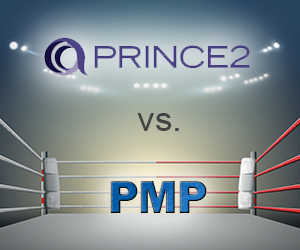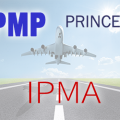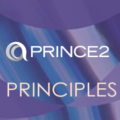
PRINCE2 and PMP (Project Management Professional) are the two main certifications for project managers in the world today. Although the certification bodies, Axelos and the Project Management Institute (PMI), tend to play friendly with each other, they are competitors.
In most areas of the world, project management certification is a choice between these two. So let the fight begin!
Just so we’re clear, the project manager certifications from PRINCE2 and PMI are as follows:
| Type | PMI | PRINCE2 |
|---|---|---|
| Project Manager | Project Management Professional (PMP) | PRINCE2 Practitioner |
| Project Manager Associate | Certified Associate in Project Management (CAPM) | PRINCE2 Foundation |
Which one is better?
This is a question with many variables, including reputation, geography, and prior education and experience requirements. But with some luck, I will narrow the focus to the important aspects.
- The Winner
- Popularity
- Geography
- Background Education Requirements
- Previous Experience Requirements
- Education Requirements
- Manual
The Winner
As much as I wish it was, unfortunately there is no knockout winner. They both have pros and cons.
PRINCE2 is significantly easier to get, because it requires no prior project management experience or courses. You can simply read the book and write the exam – online, if you like. The PMP designation, on the other hand, requires 5 years of prior project management experience and 35 hours of courses.
One would think that if it’s easier to get, it would have a lower reputation, but PRINCE2 maintains a strong reputation worldwide. That being said, geography is a major consideration, because PRINCE2 is heavily concentrated in the UK. It was originally developed by the UK government, and Axelos is even today partially owned by the UK government. A 2016 study by Axelos found that 44% of PRINCE2 certification holders were based in the UK, although double digit growth was occurring in many regions of the world.
In my opinion, PRINCE2 still feels a bit like a specialty thing, whereas PMI is more mainstream.
Popularity
It is unclear which has more active certifications. As of this writing (November 2018), the Project Management Institute (PMI) indicates that there are 833,000 active PMP certifications. However, Axelos (who manages PRINCE2) does not publish the statistics. Their website says they are the world’s most widely adopted project management method, however the requirements are significantly easier to obtain so it’s not an apples-to-apples comparison – You might want to choose PMP due to the more stringent requirements (hence long term reputational longevity).
The bout is going into the second round.
Geography
I can’t cover all the areas of the world, but I can safely call an underdog in some areas:
- In the UK, PRINCE2 is significantly more recognizable on its home turf than PMI.
- Likewise, in the United States PMI is significantly stronger.
- North and South America lean heavily towards PMI.
- Both certifications work well in continental Europe, and in some countries, like Germany, the IPMA certifications are actually the most prominent.
- PMI is the strongest in India, China and Asia in general, but PRINCE2 is making significant headway there. I believe both are recognizable in Asia, however, I am the least familiar with this region.
- PRINCE2 is the clear leader in Australia.
If you have any personal experience to add, please leave it in the comments and I’d love to incorporate it.
Background Education
PRINCE2 has no background education requirements.
PMP requires a secondary degree, which is defined as a U.S. high school diploma, associate’s degree or global equivalent. Alternatively, a four year degree (university level) reduces the experience requirements.
If you don’t meet the background education requirements you can still obtain PMI’s CAPM certification, but it still requires a U.S. high school diploma or global equivalent.
Previous Experience Requirements
PRINCE2 does not require you to have any project management experience prior to writing the exam and becoming certified.
PMP requires 60 months of project management experience within the last 8 years. At least 7,500 hours of that total must have been spent ‘leading’ or ‘directing’ a project. If you hold a four year (university level) degree or global equivalent, the requirements are reduced to 36 months of which 4,500 hours are spent leading or directing a project.
Again, if you don’t meet the experience requirements you can still become PMI-certified via the CAPM certification, which will require a U.S. high school diploma (or global equivalent) and either 23 hours of courses or 1,500 hrs of experience.
Education Requirements
PRINCE2 does not have any course requirements. One can simply read the manual and take the exam.
PMP, however, requires 35 hours of courses prior to taking the exam. These courses can be taken through a network of registered education providers, but don’t have to be. If other project management courses are used, a course description must be given, and the PMI will probably at least google it (or at most, investigate its credibility).
Again, you can still become PMI-certified via the CAPM as long as you have a U.S. high school diploma (or global equivalent) and take 23 hours of courses.
Manual
PRINCE2’s manual is Managing Successful Projects with PRINCE2. It is available only directly from Axelos.
PMI’s manual is the Project Management Body of Knowledge, which is available from directly from PMI but also from any book retailer or Amazon.
Maintenance
The PRINCE2 certifications both expire in 5 years, at which time you need to take the exam again to maintain the certification
The PMP expires in 3 years. To keep it in good standing, 60 professional development units are required which equate roughly to 60 hours of project management courses.
Cost
The cost of PRINCE2 certification has two components:
- Courses. You do not need to take any courses to write the exam, but if you do, this will incur a cost. Often the exam is included with the course (for offline courses).
- Manual. The official manual, Managing Successful Projects with PRINCE2, costs £85 (US$109) from Axelos (at the time of this writing).
- Exam. If you register with the official exam provider, PeopleCert, at the time of this writing it was US$279 for Foundation and US$375 for Practitioner. Foundation is a prerequisite for Practitioner.
- PRINCE2 Membership. This gives you access to resources on the Axelos PRINCE2 website and runs $US66/year.
The cost of PMP certification is as follows:
- Courses. You need to take 35 hours of project management courses prior to taking the exam. The minimum budget for this is for online courses that run in the range of $200 – $250.
- Manual. The Project Management Body of Knowledge (PMBOK) costs US$56 at Amazon (at the time of this writing).
- Exam. You can either pay US$555 to take the exam as a non-member of PMI, or purchase a PMI membership for US$129/year and then pay the member rate of US$405. Obviously, the PMI membership is the cheaper route, and you can cancel it within the year to make the exam cheaper overall.
Unlike PRINCE2, the PMI membership is not mandatory, and its benefits are more about staying current in the project management profession than staying certified. I myself have maintained my PMI membership for the 11 years I’ve been a PMP, and I have only occasionally read the publications they produce (although I admit they are nice to have).
Good luck, and I hope this gives you the confidence to get in the ring and hear the bell. You can’t win a fight you don’t make, but with some training and discipline you will be able to land a knockout punch in your project management career.






